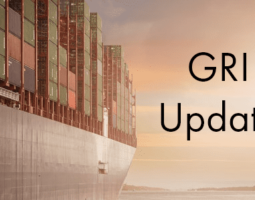Canadian Railway Strike Likely Upcoming
Two Canadian railroads have begun scaling back their operations this week, with the intention of fully shutting down operations ahead of a potential work stoppage this Thursday. Both Canada National Railway (CN) and Canadian Pacific Kansas City (CPKC) are in negotiations with Teamsters Canada Rail Conference (TCRC) over a new collective bargaining agreement, but negotiations have seen little progress to date. TCRC covers more than 9,000 rail conductors and engineers.
CN announced it would no longer be accepting intermodal shipments last week, while CPKC followed suit this week by shutting down its intermodal operations starting on Tuesday. US Class I railroads are shutting down all operations for cargo destined for Canada until further notice.
If it gets to that point, a work stoppage would have a large impact across Canada, and even into the US. The Journal of Commerce estimates nearly 400,000 containers move domestically across Canada each year, with another 50,000 containers travelling between Vancouver and Chicago.
The TCRC responded on Sunday to statements made by CN and CPKC with a 72-hour notice of intent to strike beginning on Thursday.
“Unless there is an immediate and definite resolution to the labor conflict, CN will have no choice but to continue the phased and progressive shutdown of its network which would culminate in a lockout,” CN said in a statement Sunday.
Wages are at the center of the disagreement, along with rest rules and labor availability. The railroads want to see the wage scale shift from a per-mile schedule to a per-hour schedule, but the unions contend that would lead to decreased wages for employees.
“We continue to work towards an agreement which aligns with demands from our members and have made every effort to meet with the company,” the TCRC said. “We frankly have an unwilling and uninterested partner in negotiations.”
The rest rules and labor availability disagreements revolve around the maximum on-duty period for the rail workers. The Canadian government released new rules in 2023 reducing the maximum on-duty period, but the union wants the new CBA to take those rules further. CPKC and CN feel these rules are more than enough to protect employees.
“CPKC will focus on a status quo-style contract renewal covering three years with competitive wage increases that are consistent with recent settlements with other railway unions and maintains the status quo for all work rules,” CPKC said in a statement. “The status quo-style offer fully complies with new regulatory requirements for rest and does not in any way compromise safety.”
The strike will cause delays across Canada and will likely lead to a backlog of containers at Canadian ports. Scarbrough will continue to monitor the situation as it unfolds. For more information, please contact your Scarbrough representative.

